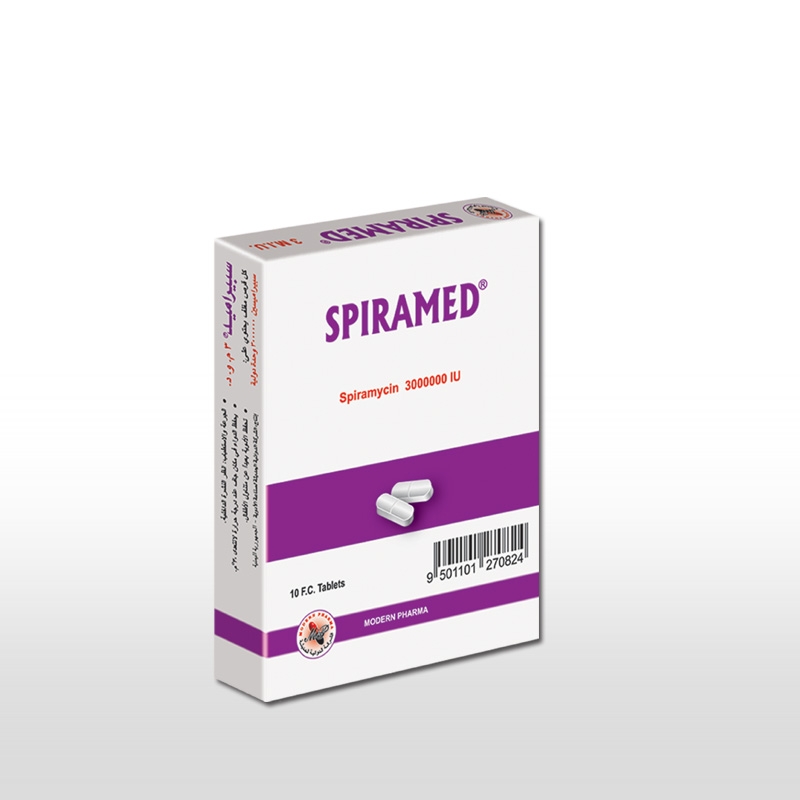SPIRAMED
Spiramycin is a macrolide antimicrobial agent. It acts by
binding reversibly to the 50S subunit of ribosome's, resulting
in blockage of the transpeptidation reaction ,inhibition of
protein synthesis and hence inhibition of cell growth .
- Its action is primarily bacteriostatic but high concentrations
are slowly bactericidal against the more sensitive strains .
- Spiramycin is active against many Gram - positive bacteria
including:- streptococcus pyogenes, streptococcus viridians
corynebacterium diphtheriae and staphylococcus aureus , and
to a lesser extent some Gram - negative bacteria such as
Neisseria meningitis , Bordetella pertussis , campylobacter
clostridium and about 50% of Haemophilus influenza.
- Spiramycin is incompletely absorbed from the GIT and the
administration with Food reduces bioavailability by 50% and
by delays time to peak serum concentration so that it should
given on an empty stomach
- Spiramycin is widely distributed in the tissues but it dose not
diffuse into CSF to an appreciable and it is distributed into
breast milk.
- Spiramycin is metabolized in the liver to active metabolites;
substantial amount are excreted into bile and about 10% in the
urine.


